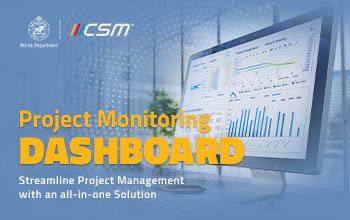The rapid adoption of Artificial Intelligence (AI) is reshaping industries across the globe, and cybersecurity is no exception. As the complexity and scale of cyberattacks grow, AI has emerged as a powerful tool in the battle against increasingly sophisticated threats. According to Cybersecurity Ventures, cybercrime is expected to cost the world $10.5 trillion annually by 2025, up from $3 trillion in 2015. Furthermore, a study by Capgemini revealed that 69% of organizations believe AI is essential to responding to cyberattacks. This data underscores the urgent need for intelligent systems to detect, prevent, and mitigate cyber risks. AI's impact on cybersecurity is not just a technological advancement but a paradigm shift transforming how organizations defend their digital infrastructures.
.jpg)
How AI Enhances Cybersecurity?
1. Threat Detection and Prediction- One of the most significant contributions of AI to cybersecurity is its ability to detect and predict cyber threats. Traditional methods often rely on known threat signatures, which leaves them vulnerable to novel or advanced attacks. AI-powered systems, on the other hand, can analyze massive amounts of data in real time, identify patterns, and detect anomalies that could signal a cyberattack. Machine learning (ML) algorithms are trained to recognize unusual network behavior, flagging potential threats before they can cause significant harm. According to a report by Markets and Markets, AI in the cybersecurity market is expected to grow from $14.9 billion in 2021 to $38.2 billion by 2026, reflecting the increasing reliance on AI for threat detection.
2. Automation of Routine Security Tasks- AI can automate repetitive cybersecurity tasks such as monitoring, filtering spam, and handling low-level threats. This automation reduces the workload on cybersecurity teams, allowing them to focus on more critical issues that require human intervention. For example, AI can handle the initial stages of a data breach response, such as isolating infected systems and containing malware, significantly reducing response times.
3. Combatting Zero-Day Vulnerabilities- Zero-day vulnerabilities—security flaws unknown to software vendors—are particularly dangerous because they leave systems exposed until a patch is developed. AI has the potential to identify and mitigate these vulnerabilities before they can be exploited. By constantly monitoring software and systems for suspicious activities, AI can uncover anomalies that may indicate a zero-day attack. Gartner predicts that by 2025, 50% of organizations will actively use AI-based security solutions to combat zero-day exploits.
4. Advanced Phishing Detection- Phishing attacks remain among the most common methods cybercriminals use to infiltrate networks. AI tools enhance phishing detection by examining incoming emails' content, context, and metadata. These tools use natural language processing (NLP) to detect subtle signs of phishing attempts that traditional filters might miss. AI-driven systems can flag these emails for further inspection, reducing the risk of human error, which often leads to successful phishing attacks.
Challenges of AI in Cybersecurity:
.jpg)
While AI is a valuable ally in the fight against cybercrime, it also introduces new challenges. Cybercriminals leverage AI to develop more sophisticated attack methods, such as AI-powered malware and automated social engineering attacks. Additionally, deploying AI systems requires significant investments in infrastructure and talent, which can be a barrier for smaller organizations.
Another critical issue is the potential for false positives in AI systems. While AI excels at detecting unusual patterns, it can sometimes flag legitimate activities as threats, leading to unnecessary investigations and wasted resources.
The Future of AI in Cybersecurity:
.jpg)
The future of cybersecurity will be increasingly intertwined with the evolution of AI. As AI algorithms become more advanced, we can expect greater autonomy in managing and responding to cyber threats. AI-driven cybersecurity platforms may soon reach a point where they can detect and respond to attacks and predict them accurately. This proactive approach will be essential in preventing cyber criminals from becoming more adept at evading traditional security measures.
However, the growing reliance on AI also means that organizations must ensure these systems are transparent, secure, and ethical. As AI becomes more integrated into cybersecurity, global collaboration is needed to establish regulations and standards that prevent misuse while fostering innovation.
Conclusion:
AI is transforming the cybersecurity landscape, offering new tools and techniques to defend against increasingly complex cyber threats. From real-time threat detection to automating routine tasks, AI reshapes how organizations protect their digital assets. With the global cost of cybercrime rising, integrating AI into cybersecurity strategies is not just a trend—it’s a necessity. However, as with any powerful technology, challenges must be addressed. By navigating these challenges responsibly, AI can continue to be a game-changer in the ongoing battle to secure our digital world.
























































We will verify and publish your comment soon.